- Home
- Carrie Jones
Endure (Need) Page 3
Endure (Need) Read online
Page 3
Using my foot, I push my Amnesty International reports off my bed, along with a couple airmail envelopes that my mom bought me at the post office before she left. They plop on the floor in a messy unpile of papers. The selfish part of me wishes that my mom could just appear at my door wearing some flannel plaid pajama bottoms and a Flogging Molly T-shirt so we could talk. She can’t, and she goes to bed early, so I call Issie instead.
“Did you have a rough time of it tonight?” she asks.
“No pixies,” I say, “except me, of course. But great weirdness ensued.”
“What was up with the Loki thing?” she whispers. Her mom doesn’t like late-night phone calls.
I ignore the question about Loki and blurt, “Nick left.”
“What?”
“He left, Issie. He told me I had no soul and he left.” The words come out with a sob. I lose my phone a little bit. It slides down my shoulder.
“He did not!” She yells it and a second later she goes, “Crap. My mom heard. I’ll call you back as soon as I can.”
There’s a rustle of noise as she hangs up the phone. I stare at my cell screen: CALL ENDED. The screen goes dark, but I keep staring at it, willing it to ring. Three long minutes later she calls back.
Her voice is an exasperated hush as she says, “I’m back. I have to be super-quiet.”
I settle into the bed, stare at the ceiling, and quickly tell her about what happened, about how Nick said I wasn’t quote-unquote me anymore.
There’s an awkward pause before Issie says, “It’s just hard to get used to.”
“I’m still me. I’m not suddenly evil.”
“But you are different.”
I sit up and stare at my feet. “How? How am I different?”
“You’re tougher, more assertive,” she says.
“Those are bad things?”
“No …” She fumbles for words.
“How do you know that I’m not different because I’ve been through some serious crises? Because of Mrs. Nix dying or watching Nick die or even Gram taking off and going all MIA? How do you know it’s not just because of struggling to save people?”
“I don’t. I just know that you’ve changed and it’s for the better. It doesn’t matter what the reason is. I am almost jealous—not of the blue, sharp-toothed way you look when your glamour is gone—I think it would be nice to be better than I am, you know? Devyn says I’m having an identity crisis because I’m human. But wait! This is not about me. I’m so sorry. Oh, I totally suck as a friend. This is about you. Let me tell you: you, Zara White, are made of the sauce of awesomeness.” She was whispering but then her voice shifts into a louder, exasperated, Issie-lying voice. “No! You took my phone, Mom. Maybe I was sleep-talking.”
Click.
End of conversation. Poor Issie. Her mom totally controls her.
I nod my head back at the cell phone, trying to let it all register. “Okay.”
After I’ve shut off the light, for a second I pretend that it is all okay, that Nick’s words didn’t hurt me, that Grandma Betty will come back, that we’ll kick all the evil pixies’ butts, that the whole apocalypse-coming thing was a big lie, and that my insides won’t feel like oatmeal left on the counter all day.
It doesn’t work, and instead of being brave and stoic, my face starts to pucker up like all the sadness is sucking it in. I wonder if I even still have my glamour on, if I still look human, and then I realize I don’t care. It’s just me here in the dark, sobbing, and there’s nobody else to see me, nobody else to tell me I’m ugly or monstrous or soulless or anything. I am alone, terribly alone. That’s when I realize how much I don’t want to be alone, how sobbing should not be a solitary sport, how I wish my mom or Grandma Betty were here to hold me and rock me in her arms and lie to me that everything is going to be okay. That’s what people who love you do: they hold you and lie. They tell you that you’re worthy, that everything will be all right, and they do that even when you both know without a doubt that this is not true, that it is nowhere near truth.
Something knocks on the window. Wiping at my eyes, I stumble over to see, pulling aside the shade to reveal Astley, his face a hollow slate of concern.
“Let me in,” he says, hovering there in the snowy sky. Flakes drip down his face, melting as they touch the warmth of his skin.
I open the blind and the window, struggling to even stay upright. It’s like sobbing has taken away all my energy, all my will, so much so that it’s hard just to stand. He hops through the window immediately, closing the blind and window behind him, blocking out the cold. He grabs me by the arms, stares into my eyes.
“What’s happened?”
It takes me a minute. I can’t say it aloud again. I just can’t. I should tell him about the giants anyway, not about Nick.
“Nick left?” he asks before I can speak.
I manage to nod and then I pull away from his arms and flop back on my bed.
“Oh, Zara …” Astley takes off his snowy coat, drapes it on my chair, and comes and sits next to where I’ve gone fetal again. He rubs at my shoulder a bit awkwardly and says, “He is a fool.”
“He thinks I’m a monster.” My voice sounds tiny. I clear my throat.
“Because you are a pixie?” He sounds so tired and angry. All his words are tight little pieces of sound.
I sniff in and start full-body sobbing again. He bundles me into his arms just like I’d been hoping someone would.
He mumbles into my hair. “Bigotry is the only monster here.”
“He’s scared,” I say, trying to defend him. “He’s been through a lot.”
“So have we all,” Astley says. “But that does not make us all into bigots. It did not make you into that.”
“Because you showed me I was wrong,” I say, hiccupping, too tired to think, to do anything except clutch at Astley’s sweater, to hang on to the one warm thing left.
He pulls me in closer, stretching his legs out to either side of me. He smells of cold night air and some sort of nice deodorant. “You did not need me to show you. You already knew.”
And then he rocks me against him, a slow, sweet movement that’s as comforting as when I was little and my stepdad did it because I’d fallen and hurt myself or because someone had told me my hair was ugly or that I was too pale or some other little-girl-mean nonsense. And it feels good, just like then. It feels comfortable and safe and so I just let go, clutching on to him, hanging on to him, to him, Astley, the pixie king, and cry and sob and sniff until my lungs want to explode from the sorrow of it, and my eyes can no longer see because the tears are so thick and heavy, clouding out the world, my room, everything.
I ache.
“It will be all right,” he lies, breathing the words against the hair at the top of my head. “We will be safe and you will be loved.”
I want so badly to believe him that I almost actually do, but instead I say, “You will be loved too, and you’ll be okay.”
He laughs. “Are you trying to comfort me? I am not the one who needs comforting at the moment.”
This is true, but I worry about him. I worry about what will happen to his pixies if he loses his good, or gets hurt. Pixies are tied to their king’s well-being. If the king is weak, then the pixies go wild, sucking energy out of boys that they torture, caring only about their own needs. Knowing that his health and well-being is so important has to be a lot of pressure for a guy like Astley, especially in a time like now. I want to take all that away from him, let him have a life where he can relax and smile all the time. He has the best smile.
“Tell me a fairy tale,” I whisper. “Tell me about something good, something I can look forward to when this is all over.”
The muscles in his chest tighten up. “Have I ever told you about our home on the Isle of Skye?”
I shake my head no.
“When this is all over, I shall bring you there. It was once a castle, passed along via my father’s line, and the castle is still on the pr
operty, but the place you would like is much warmer. It is more of a manor home. There is a garden of azaleas there that stretch around grassy paths and stonewalls. You can smell the sea. Seals come bark on the shore.”
“It sounds nice,” I murmur. “No snow?”
“No snow.” He laughs. “It is lovely. There are no battles, no war.”
“Is the food good?” I ask, stomach grumbling.
“Very. No spaghetti.”
“And are we happy?”
“Completely.”
“And we have souls?”
“Absolutely. We have perfect, unblemished souls.”
“I like this.”
His voice is so mellow and beautiful. “I thought you would.”
Astley leaves sometime before my alarm goes off. I can still smell him, so I know he hasn’t been gone long, and I can also smell Nick’s absence. It is like a slap of cold water against my heart.
There are texts on my cell phone.
Issie: Zara? I am so sorry. U OK?
Devyn: Loki? Why Loki?
Cassidy: U must text me! Something is wrong. U R 1 big mass of sorrow.
Issie: Don’t b mad.
Astley: We need to talk as soon as you are able.
I text them back as quickly as possible and it’s not until I’m in the shower that I feel it: a darkness. Again, no smell. Again, no actual person, just this feeling of being watched by something icky. I rinse the conditioner out of my hair and reach for a towel because I don’t want to have to step out of the shower naked. That is how freaked I am. Just to the left of the shower is a polished boat oar that’s been bolted into the wall as a towel rack. Grandma Betty does not have the best taste in home décor.
My hands clutch the soft cotton. Wrapping it around me, I relive every horror-movie shower scene I’ve ever witnessed—the psycho with the knife, the blood running down the drain … Shuddering, I step into the well-lit bathroom where no psycho killers lurk. Still, I feel something.
“Pshaw,” I say, using one of Grandma Betty’s words to make me feel tougher, because honestly, as if my life wasn’t scary enough? What? Now I’m getting freaked out by things that aren’t even there. Lovely.
School isn’t exactly a hopping place today. Bedford High School has about six hundred students and only about four hundred have been showing up this past week. Some parents are too frightened by all the missing-teen incidents to let their kids out of the house now, even for school. So the halls are full of a weird buzz that’s fueled by fear. I hold my breath as I walk into the front hall, try not to look through the glass windows to the left and into the office where Mrs. Nix would be if I hadn’t gotten her killed. Nick is somewhere in this building; I can smell him.
Issie hops up beside me and puts an arm around my waist. “So, how is my favorite warrior woman doing today?” she chirps. “Saved humanity yet?”
“I wish.” I adjust my backpack and bump my hip into hers.
She bumps me back. “I thought we should put up a brave front about the whole Nick thing. Is that okay? Because if it’s not okay, I’m totally okay with not being okay, okay? Did that make sense?”
“Sort of,” I say.
“When I thought that Devyn liked Cassidy I had to be brave, because if I wasn’t brave then I would just sob all the time, which was not very rah-rah feminist of me, you know?”
“Girls are allowed to be sad about boys,” I say. “Boys get sad about girls.”
“True … true.” Issie is thoughtful for a moment. “I just don’t know how it fits in with girl power to sob uncontrollably over a guy. It’s a dilemma.”
People nod when we walk by. Some talk.
“I am so scared.”
“I think my mom is figuring something out.”
“I heard my name last night. Someone was whispering it when I went into the driveway.”
“I like meatballs. There is nothing wrong with a good meatball.”
“Crap, this sucks,” Issie says as we catch up to Cassidy, whose braids are adorned with black and white beads today. She smiles and waits for us.
“What sucks?” she asks.
“Boys,” I say.
“And all the typical doom-and-gloom, end-of-the-world stuff,” Issie adds.
“Know it,” Cassidy says. She starts trying to smooth down my hair as we head toward class. “Hey, Zara, I was wondering about what the giant said …”
We talk about it, ponder, go to class, try to focus. I have e-mails about SAT test dates, ACT test dates, college recruiting things. We go to lunch. Nick is nowhere. I make it through another school day. Somehow.
Most of our school is a cell-free zone. The school system hired a contractor to wrap some weird mesh conducting material in the school when it was built ten years ago because they were worried about people using their cell phones to cheat. According to Devyn, the material blocks static-electricity fields or something. They call it a Faraday cage, named after this English scientist who invented it way before cell phones and who has been dead for over a hundred years. According to Issie, there was also a really cool Daniel Faraday character on the television show Lost. I don’t know. Anyway, everywhere in our school the signal is pretty much jammed except for the library.
So when Issie and I step outside, my cell phone starts beeping that I’ve missed ten text messages.
“Wow. Popular,” Issie teases as we head down the sidewalk toward the parking lot. A man is working in a bucket that a truck has lifted up to the electric wires. He wears a white hard hat, gloves, and a coat; working with all that voltage, all that danger. He looks fragile despite his rugged body.
I check the phone. “They’re all from Astley.”
Issie doesn’t say anything. I’m not sure how she feels about Astley, really. She used to be terrified of him, but I don’t think she is anymore. She widens her eyes and says, “And they say?”
“That he wants to meet me.”
“And?” she prompts.
“And he’s worried about me.”
“And?”
“And that’s pretty much it,” I say, shutting the phone and trying not to think about how weak I was last night and how impossibly kind he was during all of it, the way he just held me, rocking me back and forth, letting me cry, telling me about his house on some Scottish island. He was the best kind of friend last night.
I check out the man in the bucket. He works at a bolt, wrenching it. The sound of metal on metal grates against my teeth.
“Does he know about Nick?” Issie asks, pulling my attention back to earth.
“Yes.” I grab the door handle of Grandma Betty’s truck. It stings a bit. I need another anti-iron pill. “He … um …”
“So you told him?”
As I’m thinking about how I didn’t actually, technically tell him, his voice comes from my left and he walks around the back of the truck. I didn’t even smell him I’m so distracted.
“Tell me what?”
“Astley,” I say, watching his face move from something bland into concerned lines. He reaches past Issie, nodding at her, and moves his hand up to touch my arm as I say, “Hi.”
The touch is at once comfortable and uncomfortable. It’s just a tiny brush of fingers to arm through layers of fabric, but it feels excessive somehow and charged, probably because of the whole pixie thing and possibly because I feel awkward about how much I cried last night.
“Hi,” he says back, and he must realize that he’s blocking my view of Issie or something, because he moves aside a bit, mumbles an apology to her, and then says, “I have been trying to get you all day. I was wondering what happened last night that made you so sad and so scared. Would you like to tell me?”
“Oh boy …,” Issie mutters. She straightens her hat over her ears as I explain to Astley what Nick and I saw last night in the woods. As I do, his expression goes from concern to agitation.
“Zara, why did you fail to tell me this before?”
“I was tired …” I search for reas
ons that don’t involve explaining the truth: that I was moping about Nick and simultaneously distracted by Astley’s niceness. “I’m not sure.”
Conflict-averse Issie interrupts the silence. “Zara sometimes has issues remembering the big picture when human elements are involved—like emotions and stuff. It’s part of what makes her lovable.”
We both stare at Issie. My mouth must drop open, because she gently touches the bottom of her chin as a signal to shut it again. I resist the urge to hug her crazy self.
Apparently so does Astley, who lets out an exasperated sentence. “How angry would you have been if I saw this and did not tell you?”
“Pretty ballistic,” I admit. I rub my hands across my eyes. “I’m so sorry.”
“I do not need you to apologize—”
“I know.” I interrupt him and pull my gaze away, staring again at the man working on the wires. He plays with currents of electricity, things that will never end, things that make our world work. We even have electricity inside of us. It’s everywhere.
Astley’s voice is calm but strong, a current all in itself. “I just need you to trust me. We are a team, Zara. You have all our people behind you and—”
“And us,” Issie adds. Her arms cross in front of her parka and she rocks forward on her toes. But does “us” include Nick anymore? I don’t know.
“This is a rather large development. It calls for an emergency meeting,” Astley says, pulling his phone out of his pocket. “I’ll contact Amelie and Becca. Call Devyn and Cassidy. Please have Devyn research as quickly as possible.”

 Entice
Entice Endure
Endure Need
Need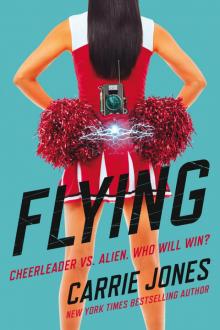 Flying
Flying Captivate
Captivate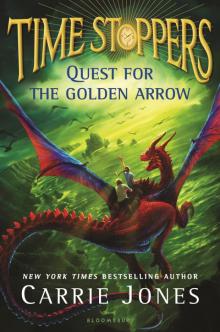 Quest for the Golden Arrow
Quest for the Golden Arrow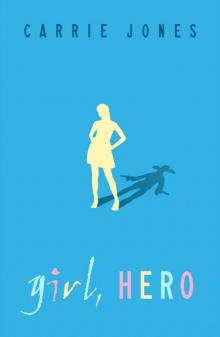 Girl, Hero
Girl, Hero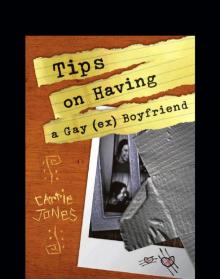 Tips on Having a Gay (Ex) Boyfriend
Tips on Having a Gay (Ex) Boyfriend Enhanced
Enhanced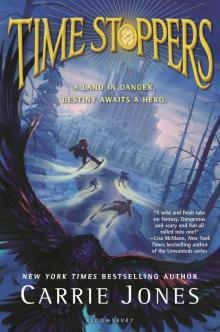 Time Stoppers
Time Stoppers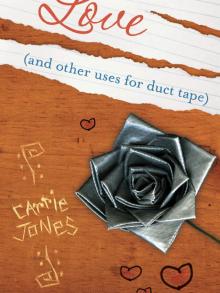 Love (And Other Uses for Duct Tape)
Love (And Other Uses for Duct Tape) Wolf's Hunger
Wolf's Hunger In the Woods
In the Woods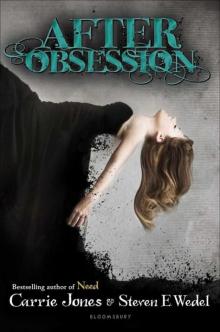 After Obsession
After Obsession Endure (Need)
Endure (Need) Need np-1
Need np-1